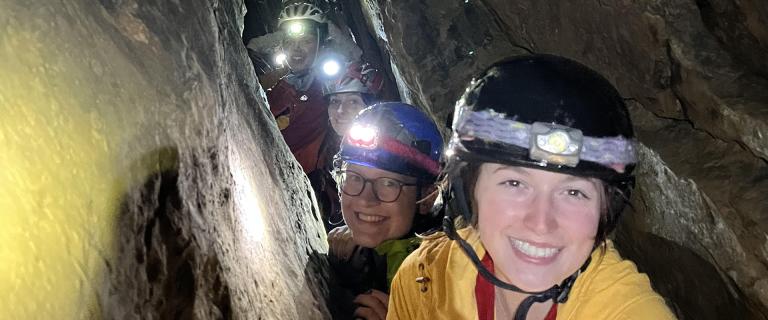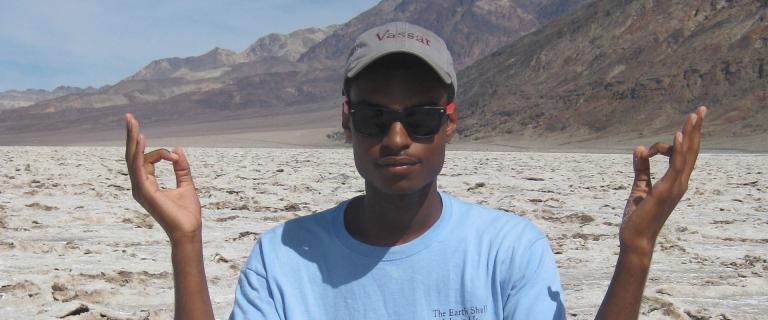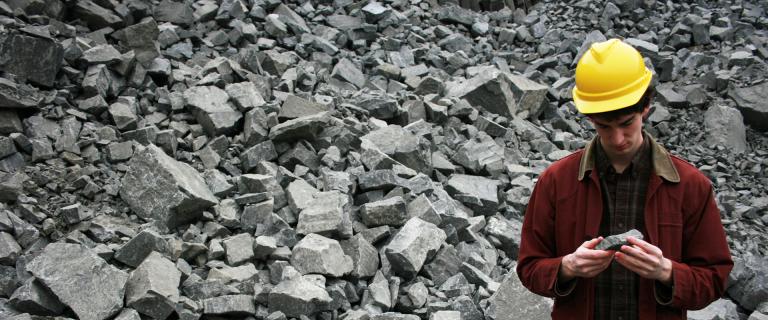Earth Science
Earth Scientists take the pulse of our planet–investigating how it works, how it is changing, and how we can build a sustainable future on its surface.
Earth scientists study the planet as a system of interacting spheres: the atmosphere, hydrosphere, biosphere, and soil and rock sphere. Together, these components create the physical environment that we inhabit, govern the abundance and distribution of natural resources, and determine the nature and severity of environmental hazards. Another distinguishing characteristic of Earth Science is the study of deep time and the evolution of life. Using relics of the past such as fossils and ice cores, we decipher Earth’s history over the last 4.5 billion years, in order to better understand our modern world.
To introduce students to the discipline, we offer two core introductory courses: “The Solid Earth”, which covers the physical geology of our planet, and “The Fluid Earth”, an exploration of the ocean, atmosphere, and climate system. Other 100-level courses introduce students to geohazards, environmental justice, and local field geology. Intermediate-level work includes the study of rocks, minerals, and soils; processes of mountain building and landscape evolution; oceanography; biogeochemistry; groundwater flow; volcanology; and geophysics. Advanced courses cover climate change; mass extinctions; tsunamis; computer modeling of Earth processes; energy resources; and local, regional and global environmental justice problems. Many courses include substantial field and lab experiences that serve both to introduce students to the local environment and to teach the analytical techniques used by the discipline.
A number of Geography courses, including Cartography, GIS, and the Conservation of Natural Resources also count toward the Earth Science major.
Careers in Earth Science
The strong training in writing, quantitative, and analytical skills acquired by Vassar Earth Science students prepares them for a wide range of careers. Our majors have gone on to become academic researchers, primary and secondary school teachers, climate and environmental policy experts, naturalists for the National Park Service, environmental and geotechnical consultants, green architects, outdoor educators and guides, government scientists, environmental lawyers, and facilities managers. See “After Vassar” to understand the broad range of careers our graduates have undertaken.
Courses and Requirements
Academic requirements and courses are available in the Vassar College Catalogue.
Majors
Correlate Sequence
Earth Science Correlate Sequence
Thesis information
Learn more about small grants for thesis research – the 2023 version




